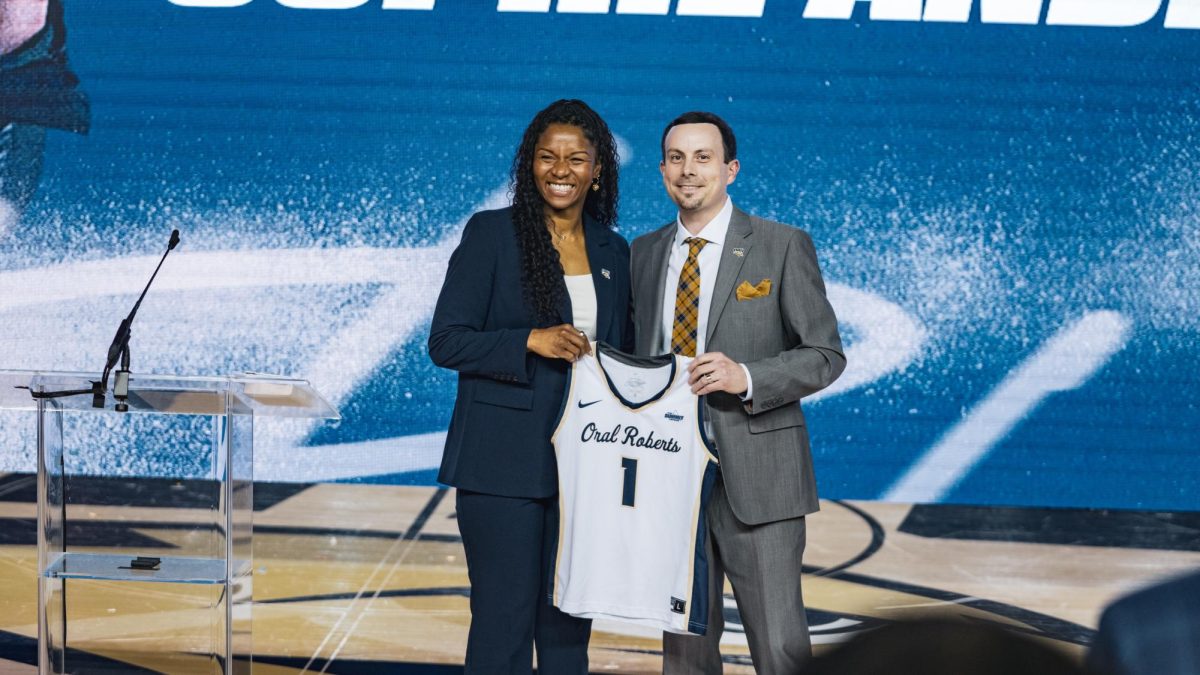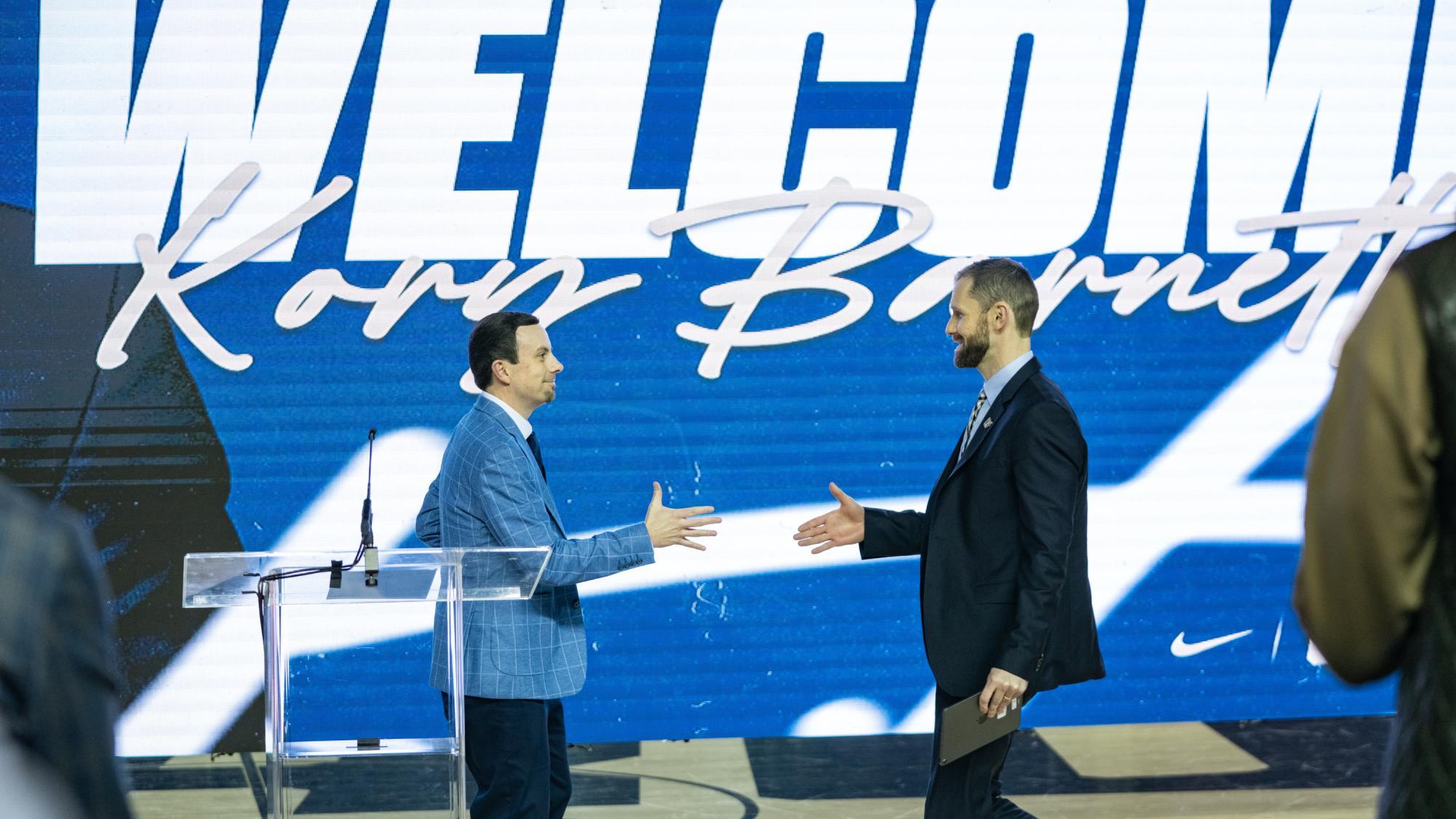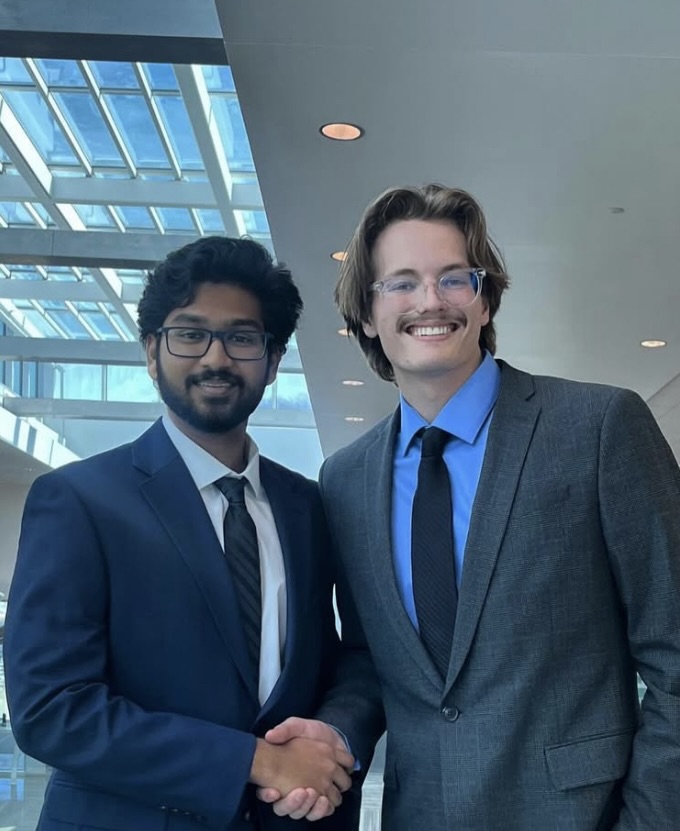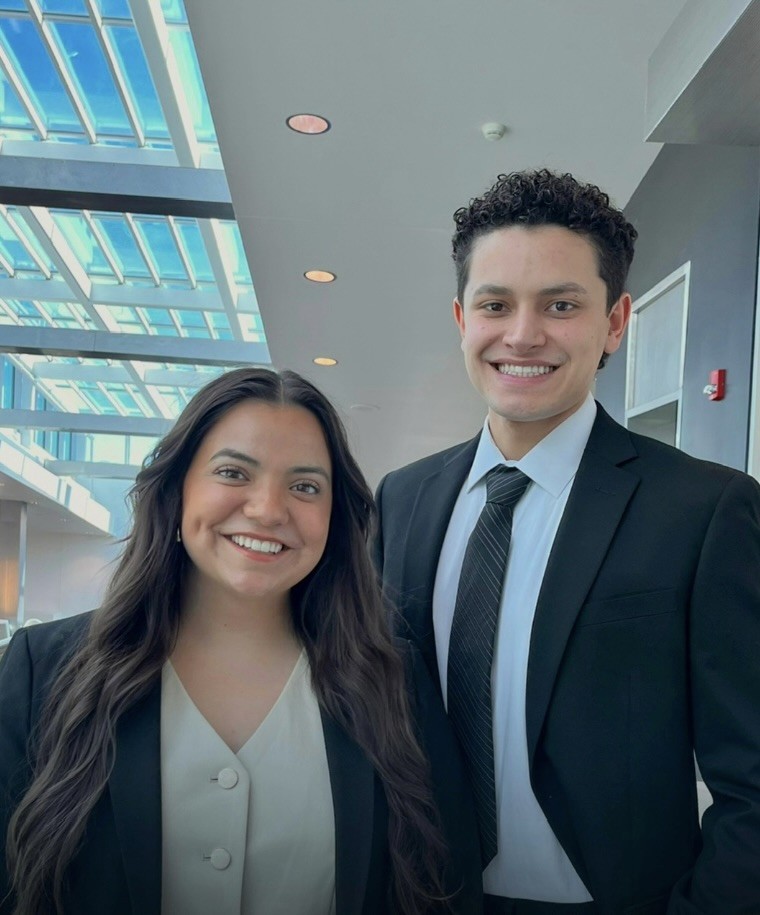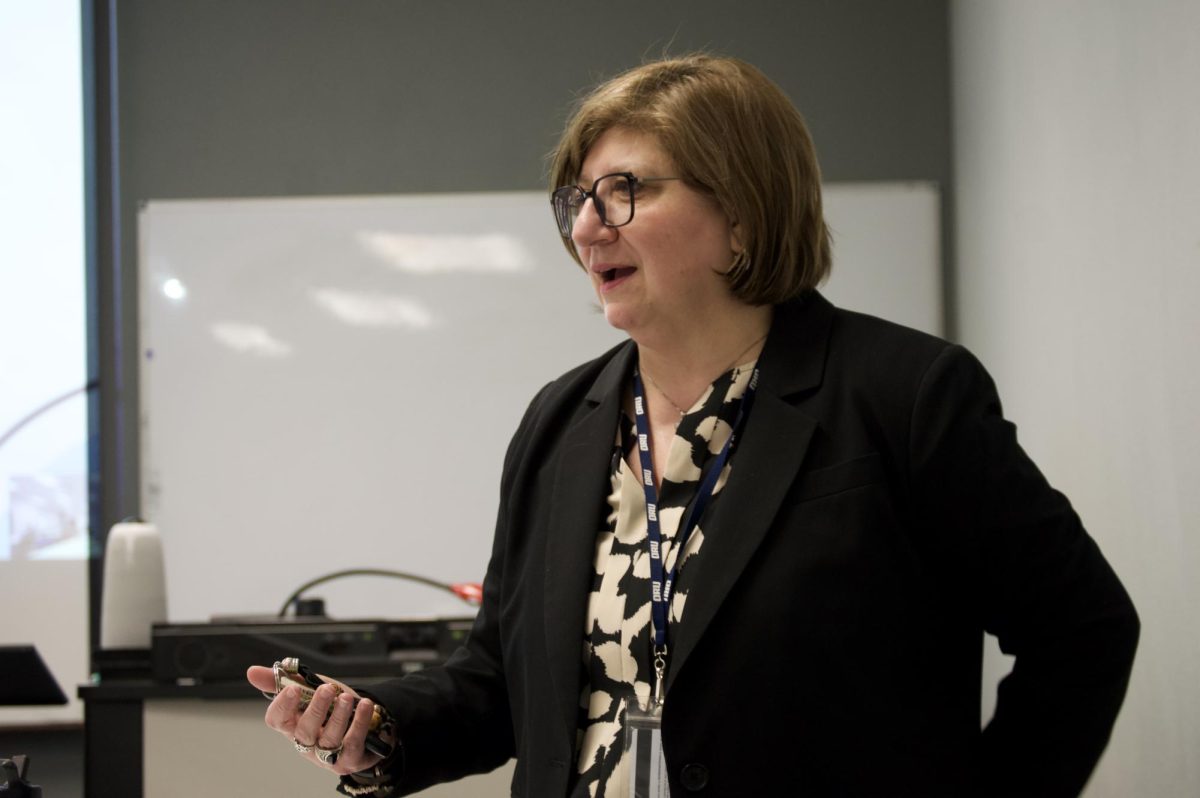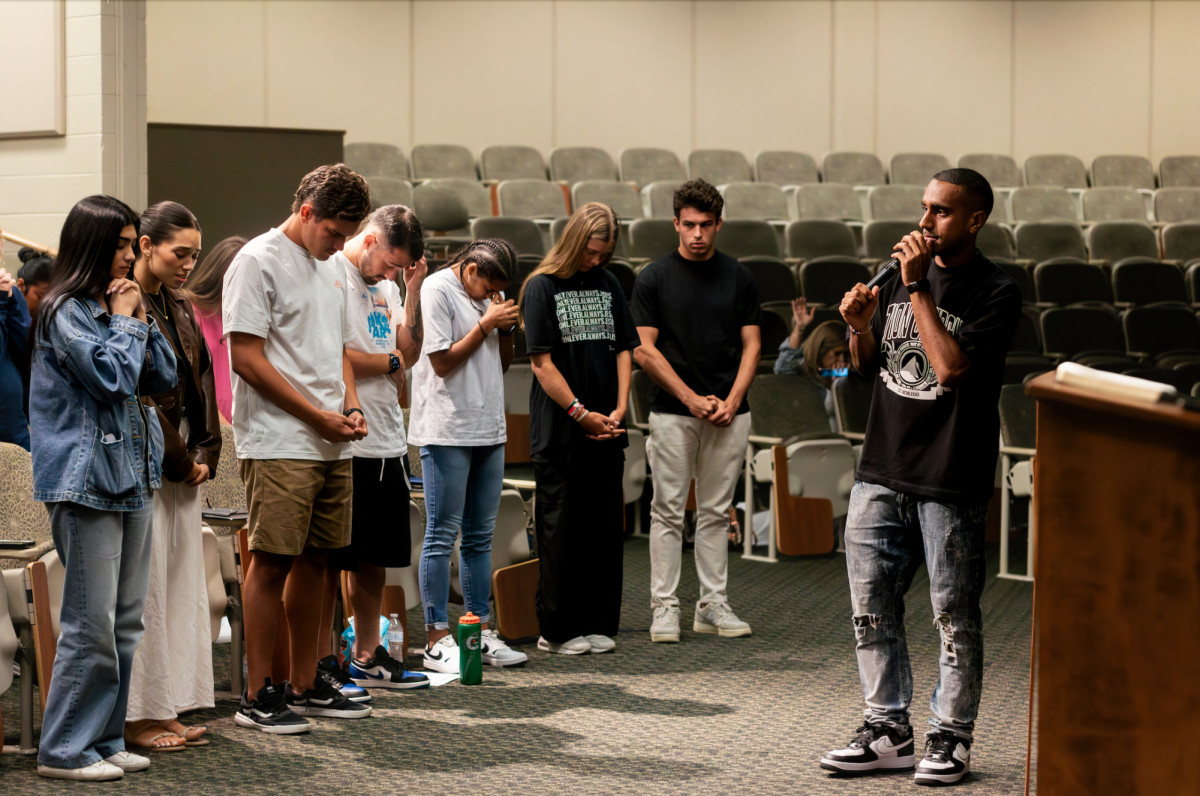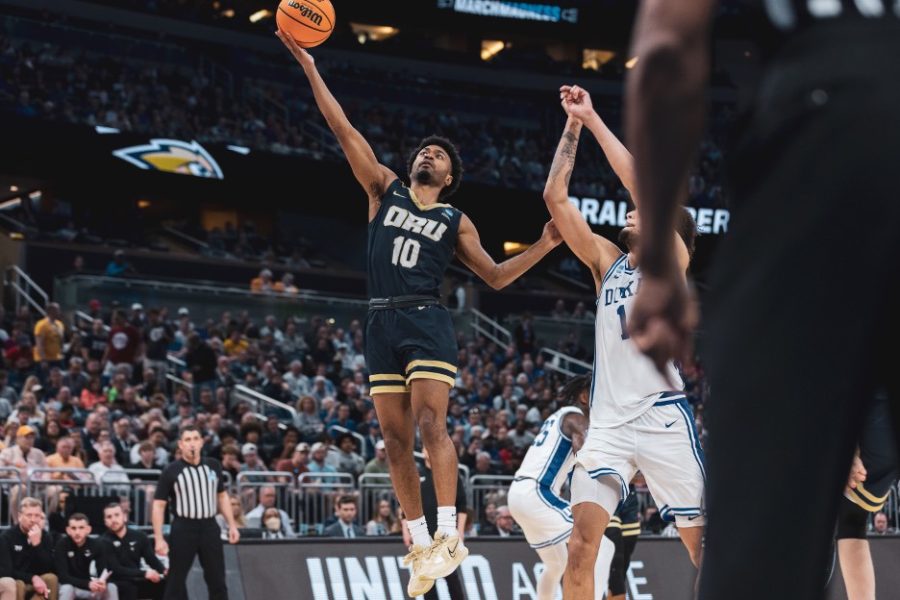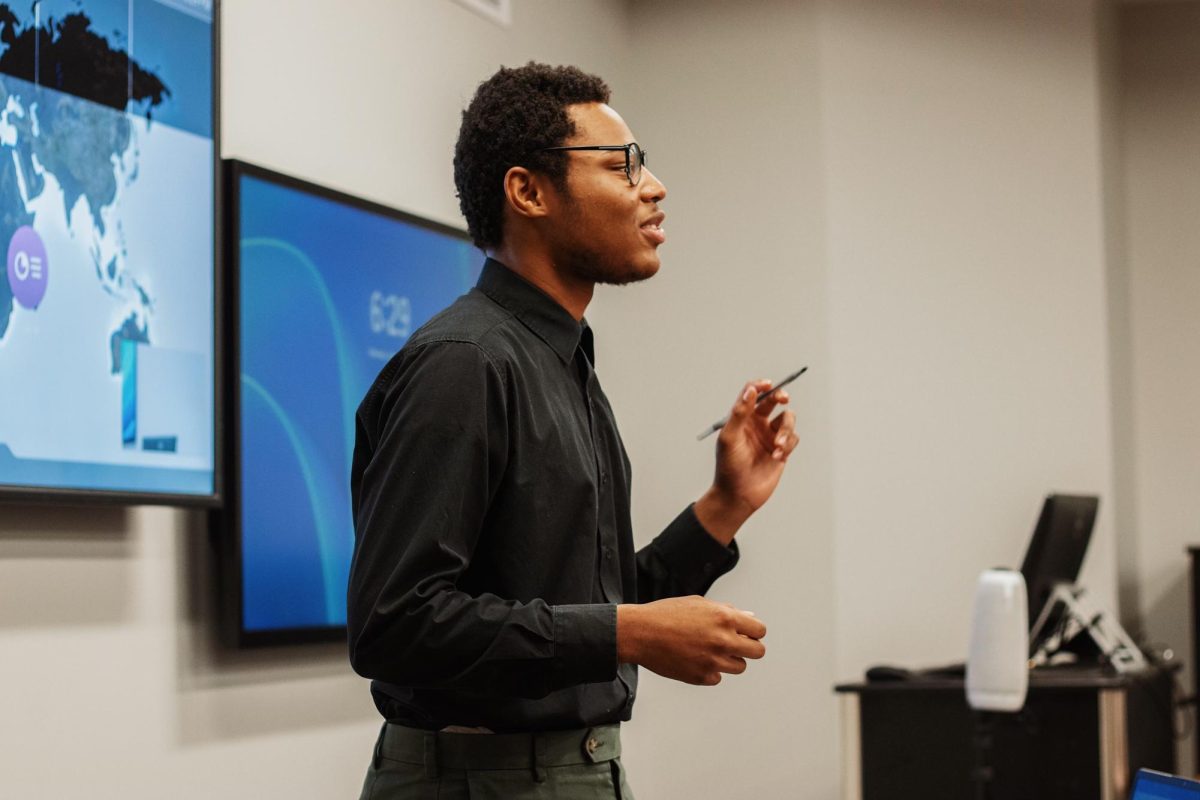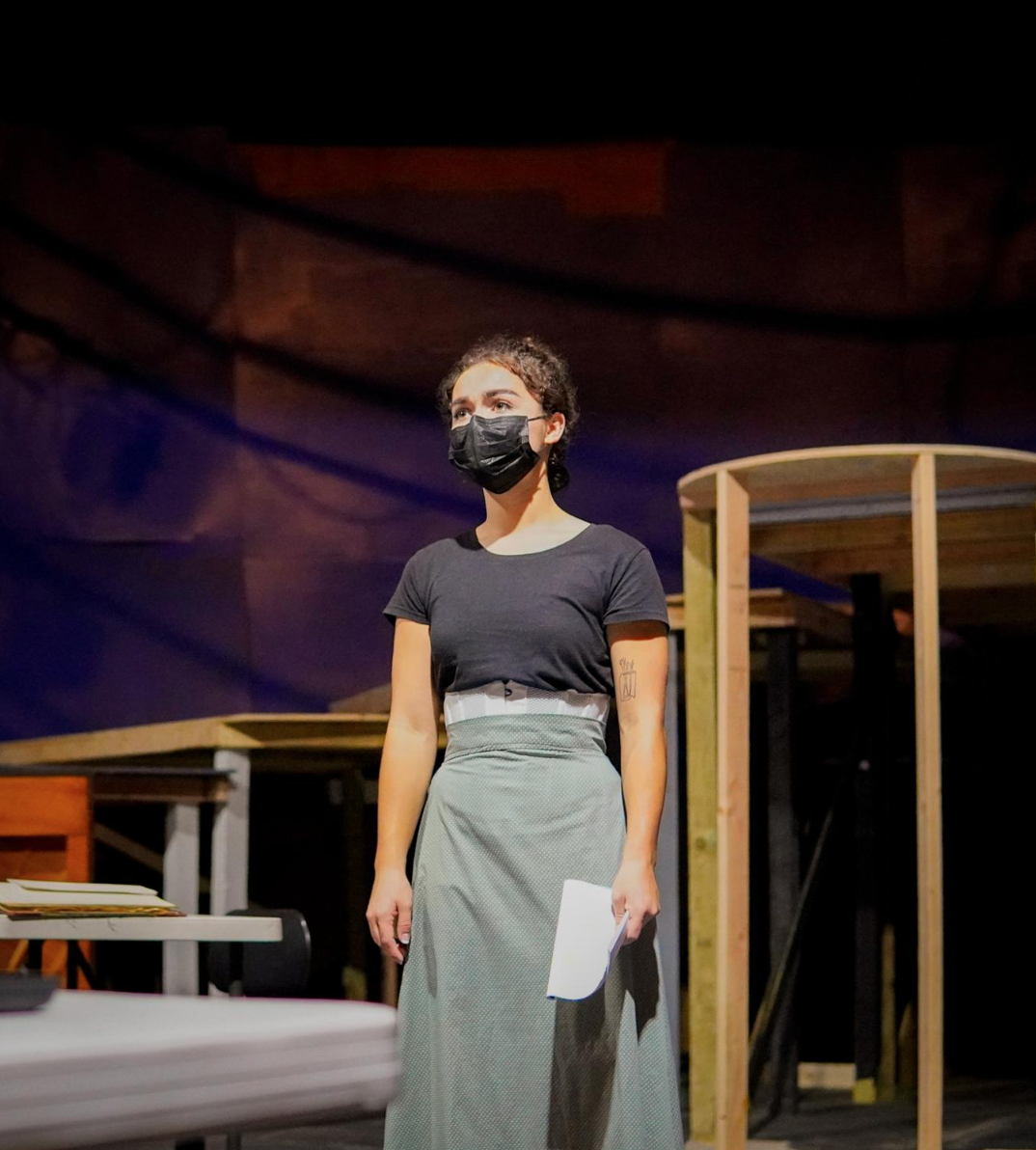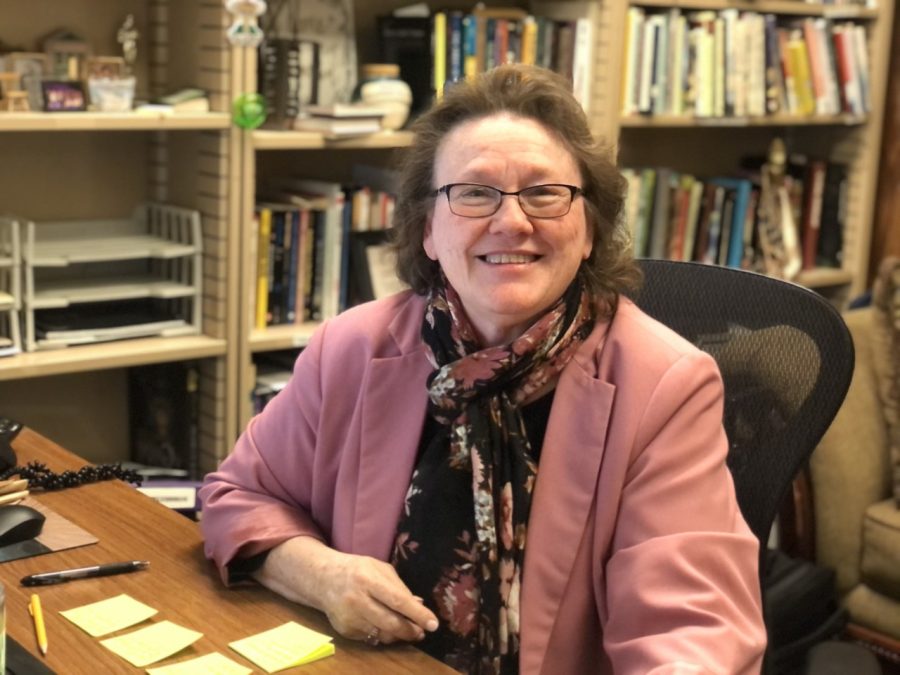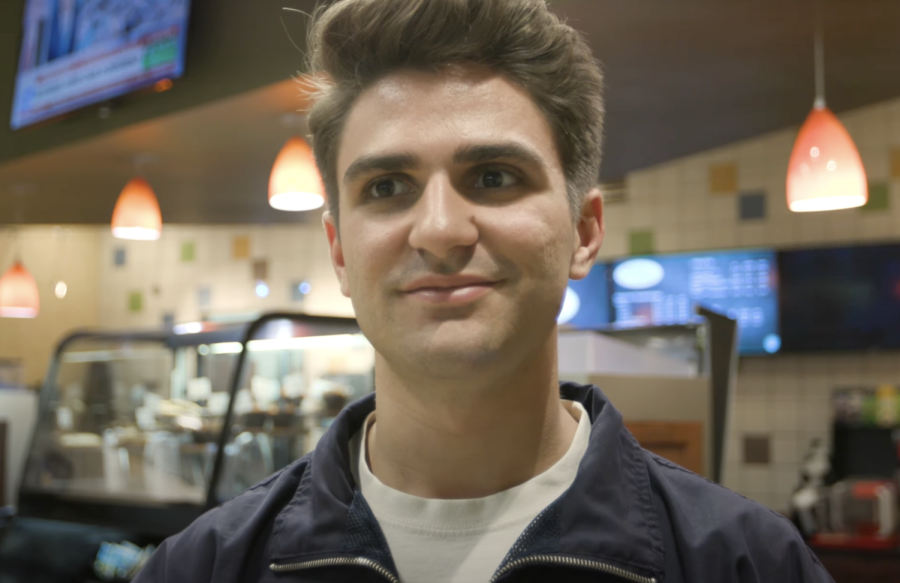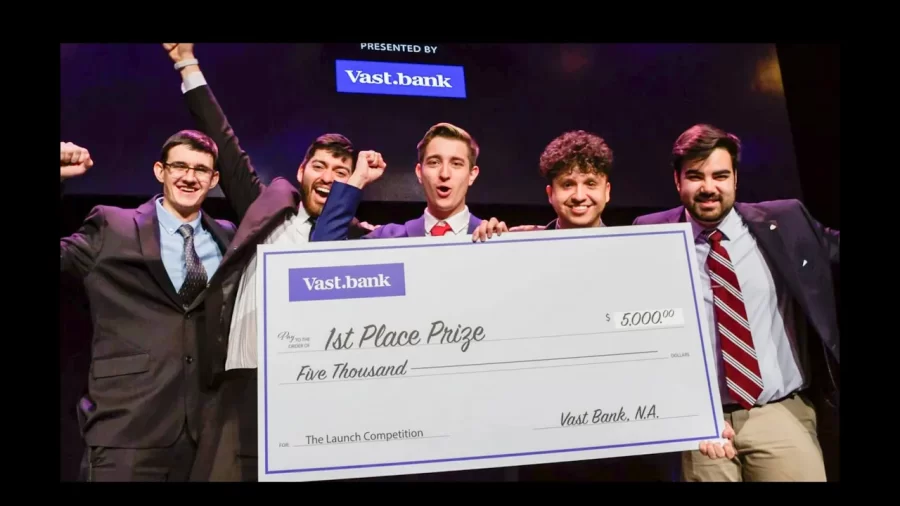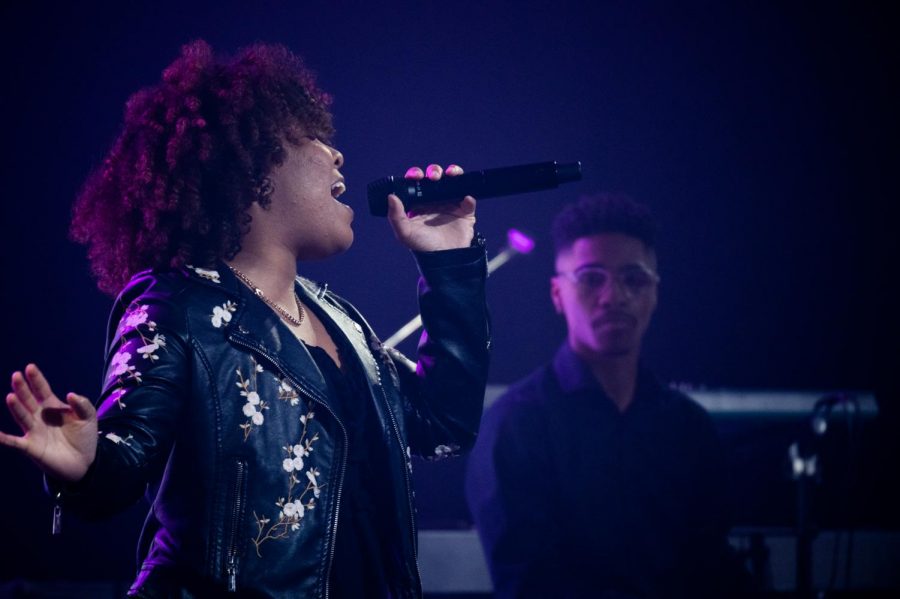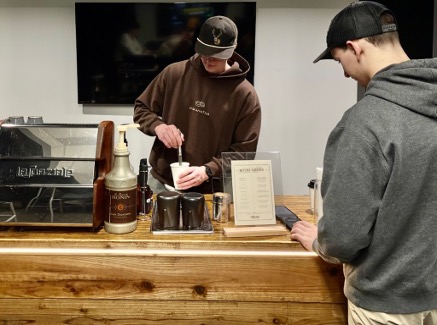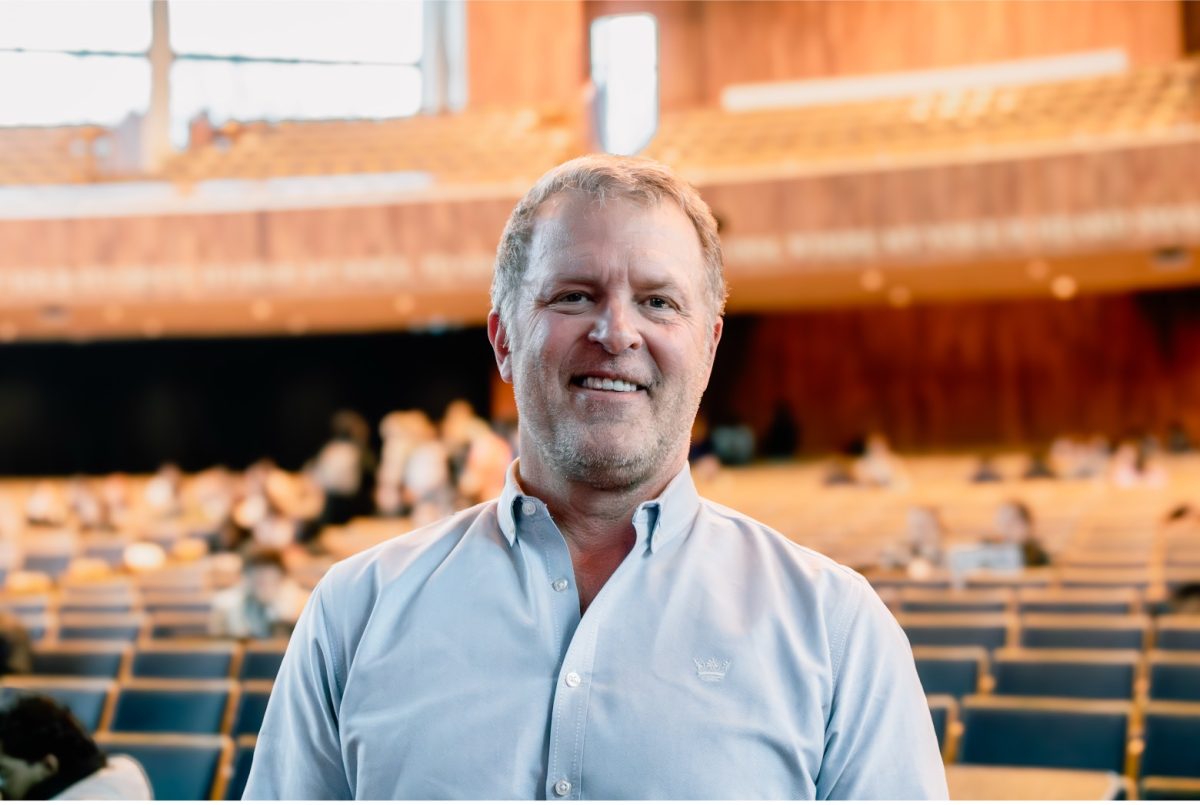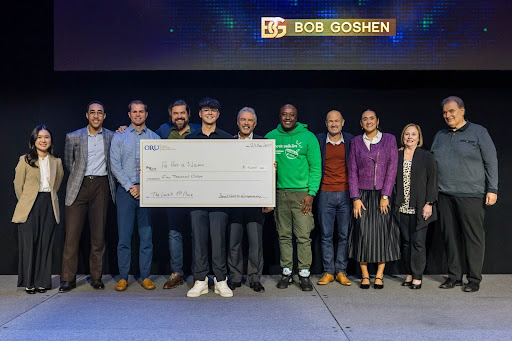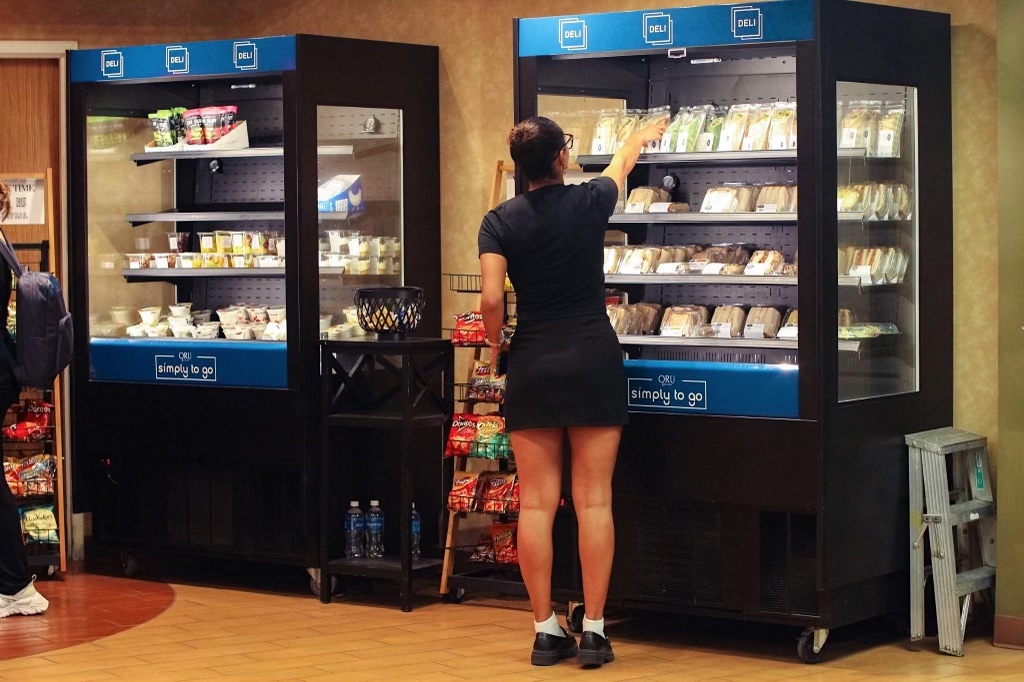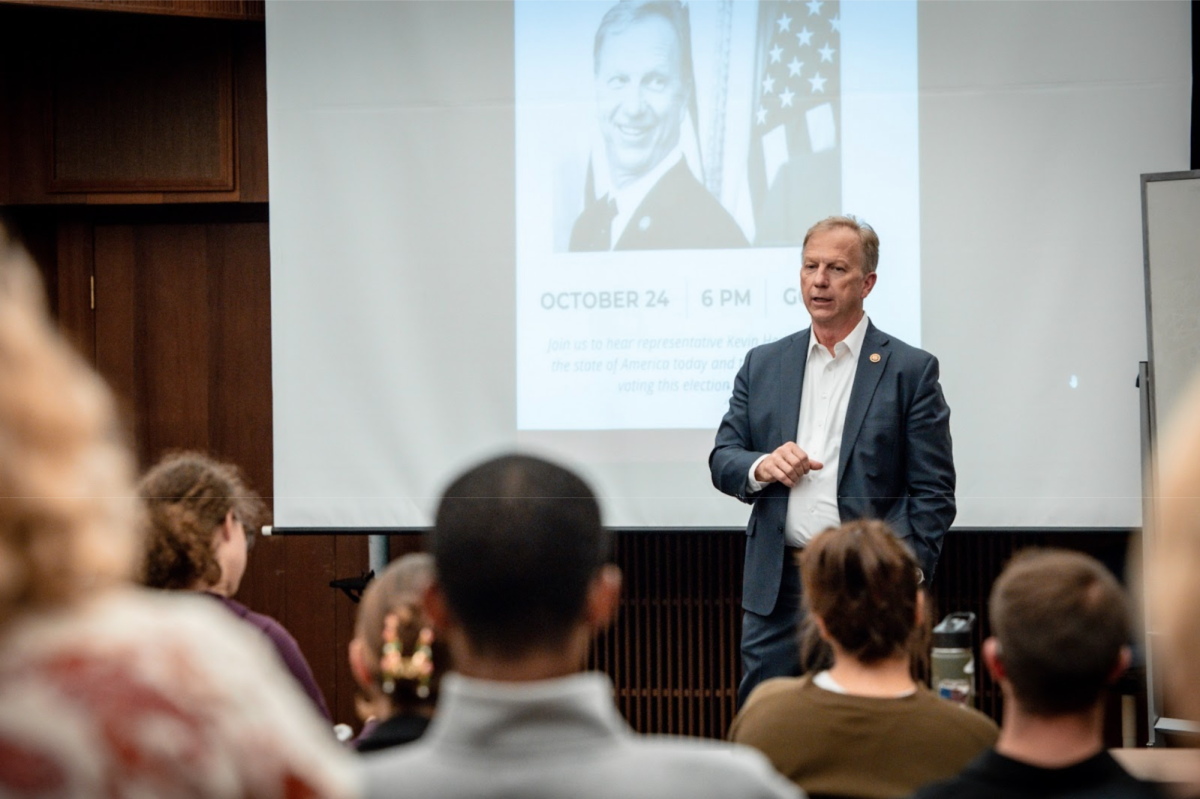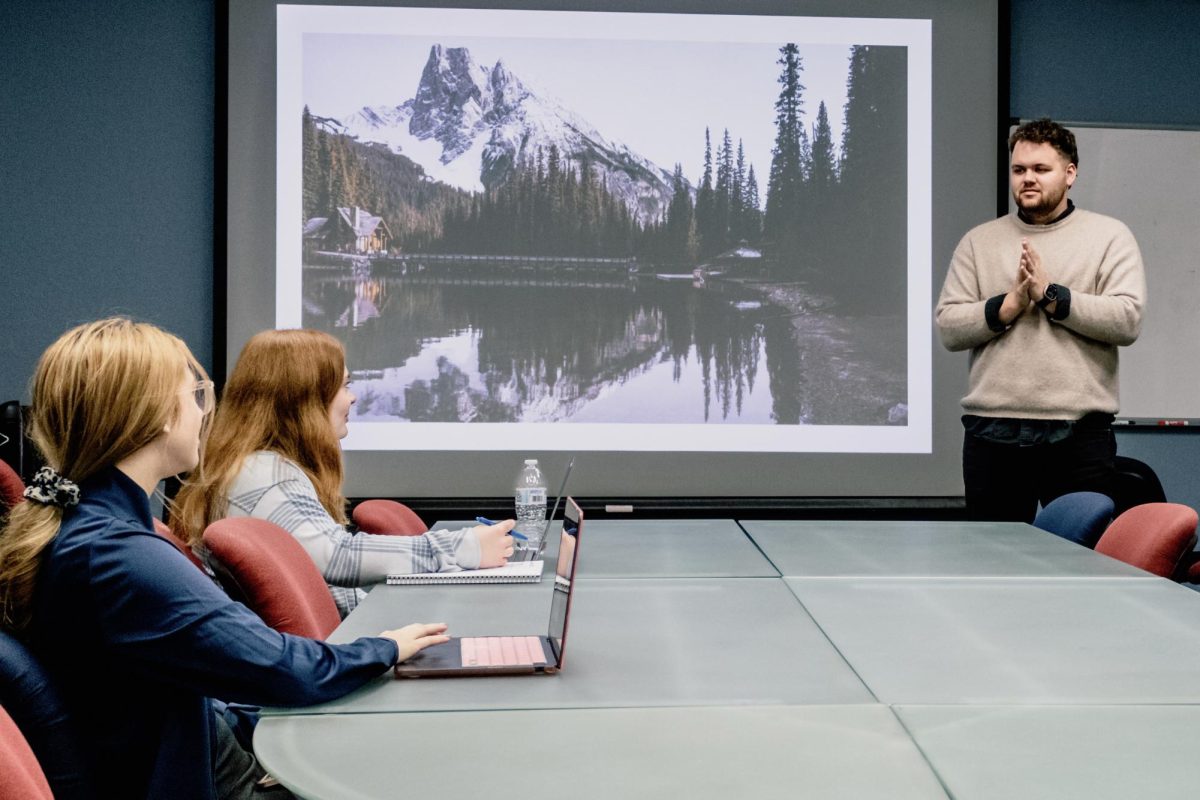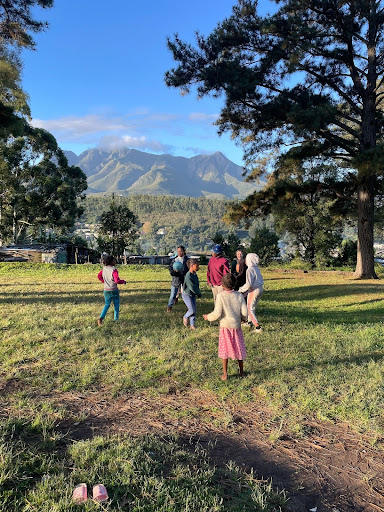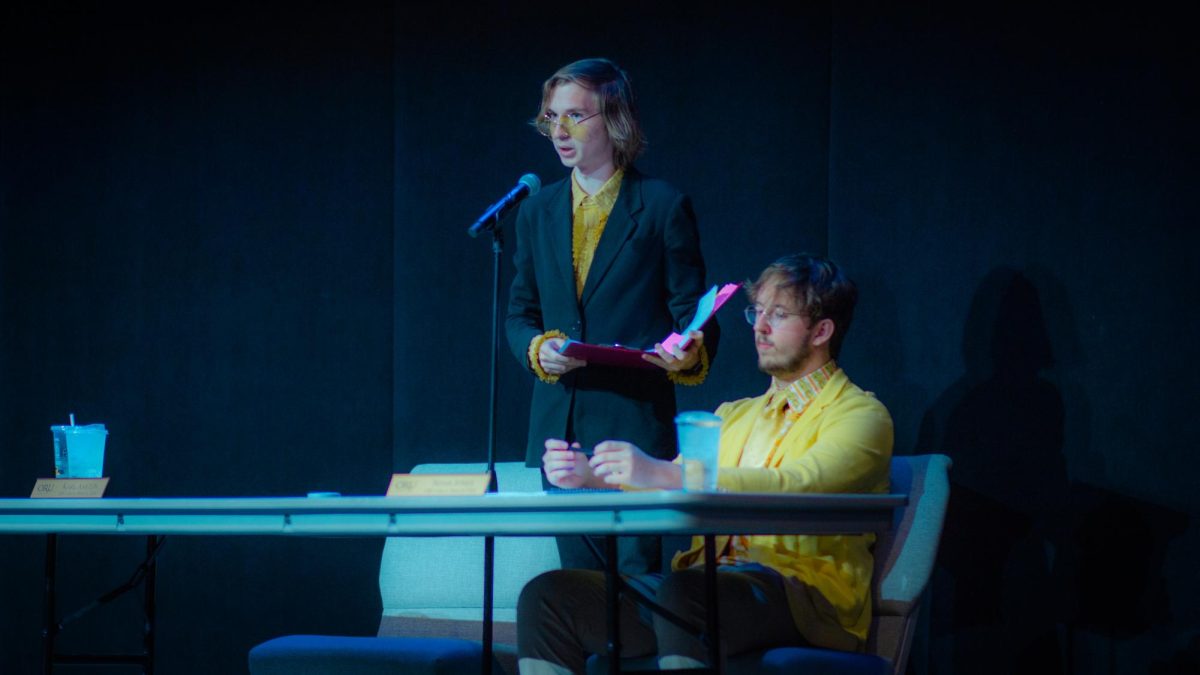As Cophie Anderson walked into President William Wilson’s office at Oral Roberts University, her heart raced.
Told to “get comfortable,” she sat stiffly on the couch, gripping a pillow with both hands, trying to steady herself.
Her nerves seemed obvious.
“That was the most uncomfortable comfortable hour of my entire life,” she would later admit.
But by the end of their conversation, something changed.
She saw the love of Christ in Wilson’s eyes, she said. She saw his unwavering support for ORU athletics.
In that quiet office, between awkward laughter and affirming words, Anderson felt a deep peace.
The official announcement came shortly after their meeting Monday. Anderson, a longtime assistant and associate coach, was named the 12th head coach in ORU women’s basketball history, succeeding her mentor and friend, Kelsi Musick.
The moment became emotional, and the players’ raw cheers of joy made it even more clear — this wasn’t just a promotion. It was a passing of the torch.
Anderson steps into the head coaching role after three transformative seasons as ORU’s associate head coach.
With a record of back-to-back 20-plus win seasons, nationally ranked scoring offenses and deep relational roots within the program, Anderson now faces her biggest challenge yet: not just sustaining success, but elevating ORU to championship heights in a new era.
Anderson’s journey to this position was not conventional. She never set out to become a head coach.
“I was happy where my feet were,” she said.
Her loyalty to Musick and their shared vision kept her rooted in her role as an assistant across two programs.
But when Musick recently departed for Arkansas, the spotlight shifted. For ORU Athletic Director Tim Johnson, Anderson brought more than a sense of continuity and familiarity. She brought vision, experience and faith, Johnson said.
Her detailed plan for the program impressed the search committee, but it was her heart for the mission that sealed it.
“Everything is written down now,” she said of the grueling interview process. “I had to dig deep. It was hard, but it brought out the vision I already had in my heart.”
With a core group of four to five returners and key players graduating or transferring, Anderson faces a semi-rebuild.
She’s targeting transfers with two or three years of eligibility, aiming for long-term chemistry.
“We need a strong post presence,” she said. “We need leadership. We’re not rebuilding entirely, but we have holes to fill.”
For Anderson, relationship-building and retention will be key. In an era where players can enter the transfer portal mid-season, the loyalty and emotional connection she’s built as an assistant matters.
“I think their reaction was genuine,” she said about the players’ cheers during her introduction. “They’re excited for me, and I’m excited for them. That kind of love isn’t common anymore.”
While some college basketball programs are restructured around rapid recruiting and analytics, Anderson is betting on stability and connection. In today’s landscape, that may be her strongest edge.
“We’re going to run the dribble-drive. We’re going to shoot threes. We’re going to make layups and push the pace,” she said. “But we’re also turning up the defense.”
She calls it EAG: Energy, Attitude, Grit.
Her goal is not just to entertain but to build a team capable of challenging the reigning Summit League champion — South Dakota State University — and breaking through to the NCAA Tournament.
For Anderson, this job is personal. It’s spiritual. It’s a legacy continued, not just started.
“I didn’t get hired because I’m African-American,” she said. “I got hired because I’m qualified. And now, I get to be a face that young women who look like me can see and believe in.”
